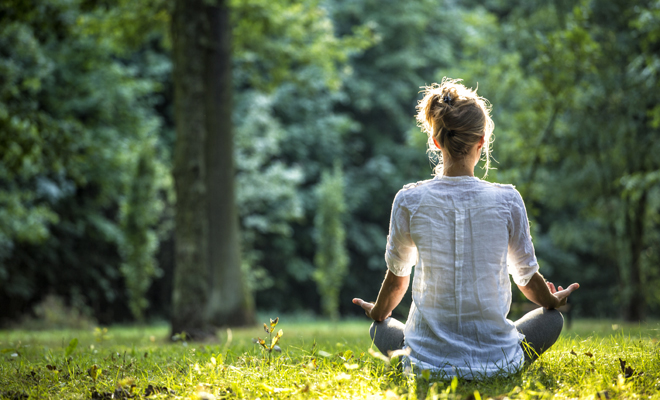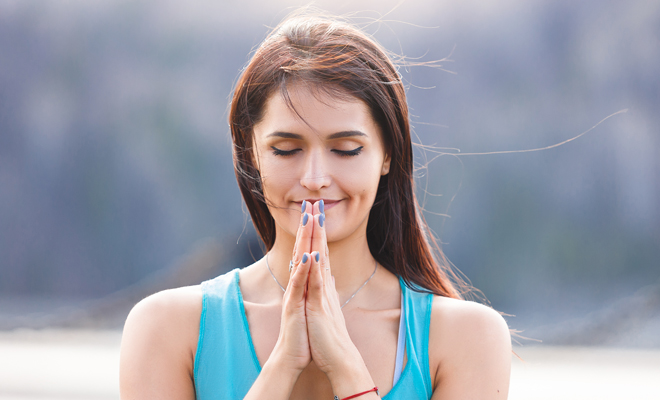You feel that life surpasses you, you become an insecure person and full of doubts, you question yourself and surely self-esteem problems also appear. Anxiety does not come into your life alone; it does so accompanied by a series of disorders that invade you until anguish takes over everything. But we are not going to let anxiety win and to fight the enemy you first have to know him. That is why we discover the most frequent anxiety symptoms.

Also, you should know that when anxiety appears, it usually warns us of something that is affecting us, that is not going well in our lives and that we need to review. That is why it is always good to attend to what its function may be. Although when it is installed we are afraid that it will appear and stop being adaptive, it is more positive to overcome it to focus on it as an ally rather than an enemy. Or, at least, try to orient our gaze to this perspective. When you “fight” against it, instead of listening to it and attending to it, it usually becomes an obsession, which ends up generating more symptoms and becoming a vicious circle.
How to recognize anxiety symptoms?
Do you have an anxiety disorder or are you nervous about a specific problem? How do you know when you have anxiety? Since anxiety is a defense mechanism that we need, many times we let go of the alert signals in our body, considering them normal. We need anxiety to warn us of danger, but we don’t need anxiety that make us see danger in every situation in life. If you don’t know how to recognize anxiety, take note of its most common symptoms.
Most common physical symptoms of anxiety
1 Shortness of breath
It is one of the most common symptoms. You have and seem to be short of breath. Sit down, clear your mind, and resume your breathing. What is actually happening is that you are hyperventilating, that is, taking in more oxygen by breathing faster, which creates the sensation that air is not coming in because your lungs are already at 90 or 95% of their capacity.
2 Chest tightness
You can’t help but put your hand on, because it’s as if something is exerting strong pressure on you in this area. Do not shrink, on the contrary, stretch, raise your shoulders, and open your chest… You will see how, little by little, this horrible sensation diminishes.
3 Tachycardia and palpitations
Your heart is racing for no apparent reason. You haven’t run to catch the bus, nor have you argued with your partner or a co-worker, but your heart rate has increased considerably. Sit down, try to control your breathing and they will subside.
4 Nausea and vomiting
Unfortunately you are not pregnant, but as if you were. You have a horrible feeling in your stomach. It may be just that, but at other times you can even vomit. That’s nerves.
5 Dizziness
When anxiety comes into your life, your head gets out of control. In certain cases, you can feel dizzy and lose control of your own body. The cause may be tension, due to anxiety, generating migraines or contractures that affect the neck. Often it also happens due to hyperventilation, since the excess of oxygen in our brain generates feelings of dizziness.
6 Muscular stiffness
In a situation of strong anxiety, your body shuts down. So much so that there are parts of it, such as the neck , that remains totally rigid, affecting the cervical and, therefore, the appearance of dizziness.
7 Sweating
One of the most common symptoms of anxiety is sweating. Your body heats up and, quickly, you begin to sweat, in some cases cold and in others hot. Sweating is a reaction related to the activation of our sympathetic system, which aims to cool our body in case we have to make a strong effort, such as running away.
8 Tingle
In the hands, feet, arms and legs… When anxiety visits us, one of the most typical discomforts is tingling in these parts of the body.
9 Tremors
When this happens, we tend to get quite scared, because it is very difficult for us to control the tremors and we are afraid that something could happen to us. Breathing is essential to maintain balance.
Psychological symptoms of anxiety
In addition to the psychological symptoms of anxiety that we will see below, two that are very important should be highlighted: a drop in mood and a decrease in self-esteem. Mood can suffer a drop by not feeling a sense of control over our lives. Anxiety reactions appear suddenly, when we least expect it, and this generates that lowers our spirits.
10 Burden
You don’t like what you are living; it throws you out of control and makes you be another. The only thing that causes is an overwhelming in the person who is suffering it, but it is something temporary.
Eleven desire to fly
You want all those feelings that you are suffering to disappear once and for all, that are why you want to run away and leave everything. But remember, escaping is not the best solution. You have to deal with all these symptoms of anxiety.
12 Sense of danger
You are afraid-that something could happen to you on your way to work, that there is a tragedy at home, that someone will happen to a loved one…- but, above all, you are afraid that you may be in danger.
13 Depersonalization
One of the worst things that happens to a person with anxiety is that, at times, they can lose their way in life, ceasing. She no longer feels like the person she had always dreamed of being. This symptom is also related to hyperventilation. The excess of oxygen in the blood in our brain generates an altered state of consciousness, as if it were an oxygen intake or drunkenness. This generates sensations of strangeness or of feeling outside of oneself.
14Restlessness and insecurity
You are nervous and restless and it is very difficult for you to change that feeling. Try going for a walk in a park or by the sea, if you have it nearby. Contact with nature will be your ally to deal with anxiety.
15 Irritability
It’s not you. In addition, you are out of control, out of you and you are not here to put up with practical jokes or ulterior motives.
16 Confusion
You don’t even know what to think anymore. There are days when you believe for sure that all this will pass, but others when you wake up with the feeling that anxiety will accompany you for life. You’re really confused.
Behavioral and cognitive symptoms of anxiety
The most common behavioral symptoms are avoidance and checking. With one hand, we avoid doing what we believe is causing us anxiety, such as going, taking the subway, going to work, social relationships… On the other hand, we check compulsively to avoid that anxiety rises (obsessively ordering everything, checking email constantly to avoid mistakes at work, taking the stress in case you are sick.) other behavioral symptoms are the following:
17 Obsessive thoughts (negative or catastrophic type)
Your mind is not in the present moment: because of the nerves, the dizziness, the tachycardia… You are unable to think coherently and the only thoughts you let into your head are obsessions like “something is going to happen to me”.
18 Difficult to focus
With all these symptoms, it is normal that you, that it is difficult for you to be 100% at work. But don’t get discouraged, as soon as you start to accept the anxiety and face it, you will be yourself again!
19 Alert status
A constant state of alert is added to the feeling of constant danger. You think that something is going to happen to you and, instead of enjoying the moment, you dedicate yourself to anticipating, and not exactly good things.
20 Jaw strain
Have you heard of? The tension caused by all the symptoms of anxiety cause your jaw to be tense all the time and your teeth to be pressed against each other. The result? Jaw tension and severe headaches.
21 Oversights
The lack of concentration brings with it a series of oversights. You forget your partner’s birthday or where you put the eye drops you had to give your daughter. You are tense and you are not able to “give your footing with the ball”.
And you, have you ever had one of these 21 symptoms of anxiety? We can only remind you that it is best to put yourself in the hands of a psychology specialist, because he will be the one who can best help you overcome them.






